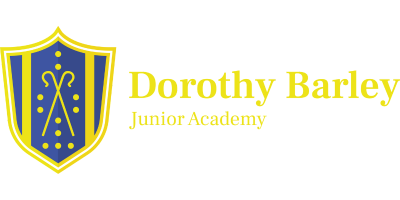Pupil Premium
Barriers to Educational Achievement in the London Borough of Barking & Dagenham
Barking and Dagenham is the 22nd most deprived authority in England and many families in the borough are either on low incomes, where full-time salaries are lower than any other authority in London, or they are dependent on benefits. More than a fifth of working age residents in the borough claim at least one type of benefit, compared to the national average of one in seven. Housing benefit claimant levels are high and have increased by 12% since 2008. Almost a third of households rent through either a housing association or the Council and house prices and average rent levels remain the lowest in London. The rate of unemployment is high, at 5%, and has risen faster in the last two years than it has across London and the UK. Child poverty levels are the 9th highest for any authority in the UK and 36% of children are living below the poverty line. Over a quarter of school pupils are eligible for Free School Meals compared to 18% nationally (evidence taken from ‘Summary Needs Assessment- Barking and Dagenham’s Children and Young People’s Plan 2011 – 2016’). The London Borough of Barking and Dagenham Education Strategy 2014-2017 document reports that approximately one in three children (34%) in Barking and Dagenham is born into poverty, higher than the national average of one in five. The borough has the highest rate of domestic violence in London.
The Use of the Pupil Premium Grant at Dorothy Barley Junior Academy
Dorothy Barley Junior Academy serves a richly diverse community and there are 33 languages other than English spoken by the children at the school. 48% of pupils have English as a first language. The largest language group at the school is English (52%), followed by Bengali, Lithuanian & Romanian (7%) and Urdu (6%).
The school has a 12 place Additional Resource Provision called the Learning Centre (currently 12 places are filled) which serves Moderate & Severe Learning Difficulties. Based on the most recent census 3% of pupils are currently receiving top-up funding. 17% of children have Special Educational Needs. MLD, SEMH and SLCN are the main areas of need. The school has seen an increase in the % of SEND children over the last three years (historically usually around 10% of the school population). 15 children have an EHCP in place. The school has also seen an increase in overall mobility in the last three years and deprivation remains high.
We are a four-form entry school catering for Key Stage 2 children. According to the October 2021 census 33% of primary pupils are eligible for the Pupil Premium Grant.
We have high aspirations and ambitions for our children and we are determined to ensure that all our children are given every chance to realise their full potential.
Background to Pupil Premium Funding
The pupil premium is a government initiative that targets extra money at pupils from deprived backgrounds. Research shows that pupils from deprived backgrounds underachieve compared to their non-deprived peers. The premium is provided to enable these pupils to be supported to reach their potential. The Government has used pupils entitled to free school meals (FSM), looked after children and service children as indicators of deprivation, and have provided a fixed amount of money for schools per pupil based on the number of pupils registered for FSM over a rolling six year period. This fixed amount of money is expected to increase every year for the course of this current Parliament. At Dorothy Barley Junior Academy we will be using the indicator of those eligible for FSM as well as identified vulnerable groups as our target children to ‘close the gap’ regarding attainment.
Our Approach to Pupil Premium
The money has been ring-fenced and will be used to benefit all Pupil Premium pupils. We have established clear lines of responsibility with a member of the senior leadership team and a link governor taking responsibility for Pupil Premium. We do this by:
- Providing short term intervention programmes for underachieving pupils and those with SEND (Special Educational Needs and Disabilities).
- Providing additional adult support for pupils in Year 6.
- Providing ‘School- Led’ Tutoring
- Providing new resources that will support learning and teaching in and out of the classroom.
- Providing consistent PWO support
- Providing part time Therapeutic Counselling support for pupils.
- Providing online learning materials for Reading and Mathematics (available 24/7) from outside the school network.
- Making sure that all children have full access to a daily diet of at least good teaching.
- Ensuring adults are deployed effectively to support those children most ‘in need’.
- Providing relevant CPD in a carefully planned INSET schedule
- Developing strategies to target poor attendance and encourage at least good attendance.
All staff are aware of areas for development in the school in terms of subjects, year groups and they know which children are focus children.
Money is used to benefit all Pupil Premium children and supports higher as well as lower ability children by extending the provision on offer.
We have rigorous assessment and monitoring systems to support improvement in the quality of teaching and interventions in order to maximise impact. Our team leader system enables us to be more responsive and frequent support such as team teaching, planning, one to one training and CPD.
Pupil Premium Funding : Who qualifies?
Please see the attached information below about who can apply and what the school gives to successful applicants. If you think you qualify the school office can help you with the forms or you can complete one online at the following web address:
www.lbbd.gov.uk/financial-support-for-pupils-and-students
PDF Downloads
Dorothy Barley Junior Academy Pupil Premium 2023 – 2024
Web Links
Articles and advice for children and young people from Department for Education.
www.gov.uk/topic/schools-colleges-childrens-services/support-for-children-young-people
